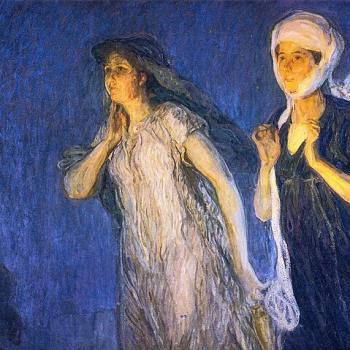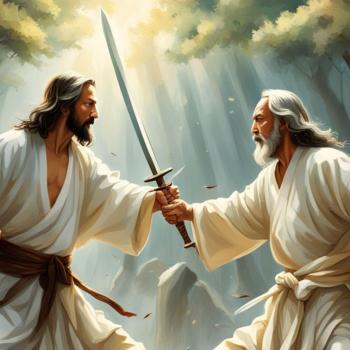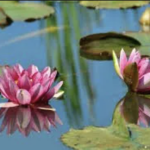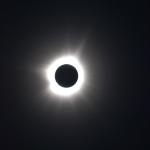 In the fall of 2011 I was honored to attend the first ever OutServe Leadership Conference. This was the first time for this organization of LGB persons actively serving in the military to gather publicly, since such public gatherings and recognition was made possible by the repeal of Don’t Ask, Don’t Tell, Don’t Harass, Don’t Pursue. It was held in Las Vegas, Nevada… and even with the setting it was as professional a military conference I have ever attended… and I have attended more than a few Chaplain Corps Conferences.
In the fall of 2011 I was honored to attend the first ever OutServe Leadership Conference. This was the first time for this organization of LGB persons actively serving in the military to gather publicly, since such public gatherings and recognition was made possible by the repeal of Don’t Ask, Don’t Tell, Don’t Harass, Don’t Pursue. It was held in Las Vegas, Nevada… and even with the setting it was as professional a military conference I have ever attended… and I have attended more than a few Chaplain Corps Conferences.
It was an honor for me to be able to sign one of the official copies of the Repeal of DADT “Chaplain David Pyle” (see picture, above).
I was attending the conference as an ally, and in my role as a member of The Forum on the Military Chaplaincy. With a fellow UU Military Chaplain, I spoke in a workshop about Professionalism and Pluralism in the Military Chaplaincy, and how LGB service members can engage more conservative Chaplains in dialog about what it means to be an LGB person serving in the military.
More than this, I listened. I had numerous conversations with LGB service members about their experience. Several of those I spoke with were Unitarian Universalists. I heard stories about service members who had been “outed” by their Chaplains. I heard stories about service members feeling they had to care for their own religious needs while deployed, because they did not believe their chaplain would support them. I heard stories about joyously finding that there was one Chaplain at their base who was welcoming and affirming of LGB persons, and building a relationship of trust with that chaplain, after having had hard experiences with other chaplains.
More than all of this, I heard a perception from many that the Chaplain Corps might be wonderful for many service members, but it just was not there for them. They were excluded from the requirement that military chaplains “perform or provide, and care for all”.
As I flew home from the conference, I sat thinking about our Military Chaplain Corps, and the realization that Chaplains had been failing all of these service members for decades. Their distrust of chaplains was an earned distrust… chaplains had wounded many of these young men and women. Chaplains had, often with the best of intentions, said thing to and about these young women and men that were soul-damaging. In hoping to “save”, what had been done was to separate… to make someone feel that they are outside of God’s love, and outside of those whom the Chaplain Corps cares for…
And for that, I am sorry. I cannot apologize for the whole Chaplain Corps, but I can apologize for my complicity in it… I realized that many of these young men and women had never had anyone apologize for the way Chaplains have treated them. And so, for myself and for whatever it might mean, I did apologize… and I committed myself to helping the Chaplain Corps grow into the fullness of no longer treating LGB service members in such shameful ways.
I was flying home to move back into my role as a Parish Minister for a UU Congregation (I went right from the Airport to an event at the church I serve), and it had me thinking about the difference of role I have in these two ministries, and how my faith plays a different part in each of these roles for me.
As a Parish Minister, my Liberal Faith as a Unitarian Universalist Minister is what I wear on my sleeve. I preach the gospel of interdependence and inherent worth. I lead a congregation in social justice actions. I speak the saving grace of universal salvation whenever I am given the opportunity. My faith is a public faith that I present to the world, and encourage the congregation I serve to join me in doing so.
Yet, in military chaplaincy, and indeed in any chaplaincy, my faith plays a very different role. My Liberal Faith as a Unitarian Universalist is the inner strength I need to be with people in the best and the worst moments of their lives. My Liberal faith is what calls me and allows me to be with someone else, focusing on what their faith asks and requires of them in a particular place and time. As a military chaplain, my personal faith is of utmost importance… for me… for how I have the strength to be with someone else in their confusion, pain, loss, grief and hurt. As a military chaplain, I am called to be with them in their religious faith… not to import into the moment my own.
As the plane was landing in Los Angeles, I realized that perhaps the issue among military chaplains is that we do not understand or accept these two very different understandings of ministry. Many of the behaviors that wounded so many of the service members I spoke with this weekend would have been completely appropriate coming from a Parish Minister of a conservative tradition in a civilian setting… but were inappropriate (in my opinion) from someone entrusted with the responsibility and authority of military chaplaincy.
So, when denominations and seminaries teach only the Parish/church model of ministry, how do we inspire ministers who wish to be Military Chaplains to understand and accept this different role for their personal faith? I do not know. Perhaps we need to change the standards of who can become a military chaplain. Perhaps we need to require Clinical Pastoral Education. Perhaps we need to take a look at what denominational endorsers are telling their chaplains their role in the military should be.
All I know is that, as I listened to the stories of the Soldiers, Sailors, Airmen, Guardians, and Marines I spoke with, it was apparent to me the cost of not addressing this in our Military Chaplain Corps.
For, as I listened to the stories, I felt ashamed.
Yours in Faith,
Rev. David















